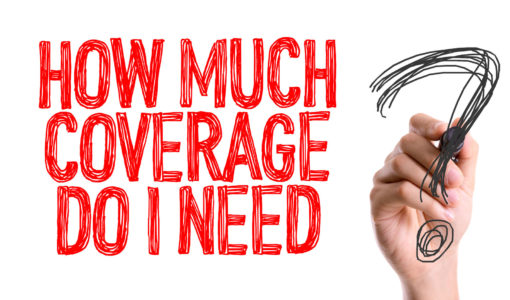Does auto insurance cover hospital bills?

Free Car Insurance Comparison
Compare Quotes From Top Companies and Save
Secured with SHA-256 Encryption
Brad Larson
Licensed Insurance Agent
Brad Larson has been in the insurance industry for over 16 years. He specializes in helping clients navigate the claims process, with a particular emphasis on coverage analysis. He received his bachelor’s degree from the University of Utah in Political Science. He also holds an Associate in Claims (AIC) and Associate in General Insurance (AINS) designations, as well as a Utah Property and Casual...
Licensed Insurance Agent
UPDATED: Jan 5, 2024
It’s all about you. We want to help you make the right coverage choices.
Advertiser Disclosure: We strive to help you make confident car insurance decisions. Comparison shopping should be easy. We are not affiliated with any one car insurance provider and cannot guarantee quotes from any single provider. Our partnerships don’t influence our content. Our opinions are our own. To compare quotes from many different companies please enter your ZIP code on this page to use the free quote tool. The more quotes you compare, the more chances to save.
Editorial Guidelines: We are a free online resource for anyone interested in learning more about car insurance. Our goal is to be an objective, third-party resource for everything car insurance-related. We update our site regularly, and all content is reviewed by car insurance experts.
UPDATED: Jan 5, 2024
It’s all about you. We want to help you make the right coverage choices.
Advertiser Disclosure: We strive to help you make confident car insurance decisions. Comparison shopping should be easy. We are not affiliated with any one car insurance provider and cannot guarantee quotes from any single provider. Our partnerships don’t influence our content. Our opinions are our own. To compare quotes from many different companies please enter your ZIP code on this page to use the free quote tool. The more quotes you compare, the more chances to save.
On This Page
- Auto liability insurance covers the medical bills of an injured party hit by an insured negligent driver
- No-fault coverage in the form of medical payments and personal injury protection also cover medical bills
- Drivers need a policy capable of protecting them financially when an accident causes injuries to others
Being involved in a serious auto accident is not something anyone wishes to experience. As many decades of traffic and highway statistics show, avoiding an accident is just not always possible.
The hands of fate — and, sometimes, acts of negligence — lead a driver into an accident.
An accident that only causes vehicle or property damage can be deemed somewhat of a blessing. “At least no one was hurt” is the common refrain after these mishaps.
Sadly, there are those instances in which someone did end up hurt. The injuries could even be severe ones.
Medical bills accompanying injuries are usually expensive. Hopefully, an auto insurance policy can cover the financial costs of a hospital stay.
If you have recently experienced a car accident and injuries and need better auto insurance, compare at least three to four policies today! Enter your ZIP code above to begin!
Auto Insurance and Hospital and Medical Bills
Forty-eight states require the purchase of auto liability insurance. Drivers in at-fault states are heavily reliant on the financial safety net liability insurance provides.
With auto liability insurance, bodily injury liability insurance covers the hospital, medical, and other bills of someone injured by an at-fault driver up to policy limits.
To clarify, liability insurance only covers someone who was injured by negligence caused by the insured driver. The insured driver could not file a claim for their own medical bills under liability coverage.
Auto liability is not the only coverage delineation that deals with medical bills. If available, a driver in an at-fault state may be able to purchase personal injury protection insurance (PIP).
Typically, personal injury protection is most associated with no-fault insurance states. Under PIP coverage, a policyholder files a claim with their own insurance company to cover medical expenses and lost income, which is done no matter who is at fault.
In a no-fault state, PIP might be mandatory. While policyholders are supposed to file a claim for medical costs via the PIP coverage, this does not, however, automatically eliminate the ability to file additional claims against the at-fault driver under their liability coverage.
Medical bills and lost wages are not the only damages someone might suffer. Claims on damage to a vehicle and/or personal property would go against liability coverage.
A caveat needs to be mentioned here. Be mindful that different policies in different states come with their own unique rules and exclusions for coverage and perils.
Do not make any assumptions about what PIP will or won’t cover. Always seek accurate clarifications and explanation from an insurance company itself.
Auto liability coverage, however, does not seem to change much from state to state. The core of liability coverage is to provide compensation to someone injured by a driver’s negligence.
That said, other factors such as contributory or pure negligence could diminish or eliminate a claim.
FREE Car Insurance Comparison
Compare quotes from the top car insurance companies and save!
Secured with SHA-256 Encryption
Liability Insurance and Medical Costs
Auto liability coverage is designed, in part, to pay for the injuries to those hurt in an accident due to another driver’s actions. The injured party could file a claim for hospital bills and other losses.
The insurance company does not automatically pay out what the person is requesting based on their word alone, though.
Submitting medical and hospital bills to the insurance adjuster to properly determine legitimate costs is required in order to validate the claim.
Filing a liability claim is a process. An auto insurance company could reject or fight a claim based a host of legitimate reasons. Legal proceedings often result when this is the case.
Compare quotes from the top car insurance companies and save! Secured with SHA-256 Encryption
How Liability Coverage Protects All Parties
The purpose of liability insurance is to provide a layer of financial protection to a driver who is at-fault for causing an accident.
If another driver, a passenger, a pedestrian, or anyone else is injured due to the driver’s fault, the insurance company would pay a settlement via an approved claim.
The insurance also covers the financial health of the person who was injured since they are able to file a claim with an insurance company for losses.
Filing a claim for financial loss creates a recourse for financial compensation that might not exist otherwise.
That is to say, suing someone with little or no assets won’t yield money to pay for medical expenses. An insurance company has assets to make a settlement.
The insurance company’s ability to provide a reasonable settlement may be appealing to a claimant who does not want to deal with a long, drawn-out court case.
No-fault insurance could potentially streamline certain scenarios even further.
The No-Fault States and Claims
Keep in mind the statutes in no-fault states may vary. Additionally, PIP coverage alone may not be the only mandated no-fault insurance.
No-fault auto insurance states may also require purchasing an additional coverage option to deal with hospital bills.
Medical payments coverage can be claimed by the policyholder and, depending on the policy’s terms, the coverage could extend passenger or approved additional driver on the policy.
Once again, proving negligence against someone does not fit into the equation when claims are made. Medical payments coverage or personal injury protection plans fall under the aptly titled “no-fault” category.
Although the basic concept of no-fault car insurance is mostly the same, the various rules and statutes are different in every state.
Michigan, amazingly, allows for claims against damage to property under property protection coverage (PPI). PPI will even pay up to $1 million in damages.
PIP — or medical payments coverage — may limit but won’t eliminate claims against bodily injury coverage.
Filing a personal injury lawsuit for medical bills may be possible once the limits on the PIP coverage are met or if the injuries are incredibly grievous. Check with an individual policy and state laws for exact details.
To repeat, auto liability insurance may cover losses associated with damages beyond medical bills and lost wages. Legal bills, property damage, and more would likely be outside the coverage blanket of PIP or PPI.
FREE Car Insurance Comparison
Compare quotes from the top car insurance companies and save!
Secured with SHA-256 Encryption
Why no-fault laws?
Certain states mandate no-fault coverage options, because no-fault coverage has the tendency to reduce lawsuits.
After all, more coverage is available, and the no-fault aspect of the coverage could make the process of receiving compensation easier and faster.
Some may still be irked at being mandated to purchase such coverage. Obviously, adding personal injury protection to a policy is going to cost additional money.
Premiums go higher and higher as more coverage is added. That is to be expected.
Many people assume they are automatically going to pay “sky high” prices on coverages. Such is not necessarily the case. Online comparison shopping could lead to locating an affordable policy.
The Coverage Limitation Cloud
Insurance policies have limits. A liability policy that lists $100,000/$300,000 coverage means coverage of up to $100,000 per person at $300,000 maximum per accident is covered.
While a state may require purchasing liability insurance, the thresholds are likely very low.
In Montana, for example, minimum bodily injury coverage at required at the amount of $25,000/$50,000. That figure probably would not cover the bulk of a major hospital stay.
Personal injury protection comes with limits as well. Acquiring $10,000 in PIP coverage definitely helps more than having no insurance coverage.
Drivers need to know they would be responsible for financial costs over the coverage minimums. Consequently, procuring the right coverage limits combined with picking the best insurance provider is a must.
On Selecting Coverage
Requesting quotes from different insurance companies allows for making the necessary comparisons required to choose the right policy.
Anyone in the market for auto insurance should look at how much coverage can be purchased and at what price.
By being deliberate and prudent, finding the best coverage should not be too difficult. Start comparison shopping today for the best auto insurance rates! Enter your ZIP code below!
FREE Car Insurance Comparison
Compare quotes from the top car insurance companies and save!
Secured with SHA-256 Encryption
Brad Larson
Licensed Insurance Agent
Brad Larson has been in the insurance industry for over 16 years. He specializes in helping clients navigate the claims process, with a particular emphasis on coverage analysis. He received his bachelor’s degree from the University of Utah in Political Science. He also holds an Associate in Claims (AIC) and Associate in General Insurance (AINS) designations, as well as a Utah Property and Casual...
Licensed Insurance Agent
Editorial Guidelines: We are a free online resource for anyone interested in learning more about car insurance. Our goal is to be an objective, third-party resource for everything car insurance-related. We update our site regularly, and all content is reviewed by car insurance experts.




